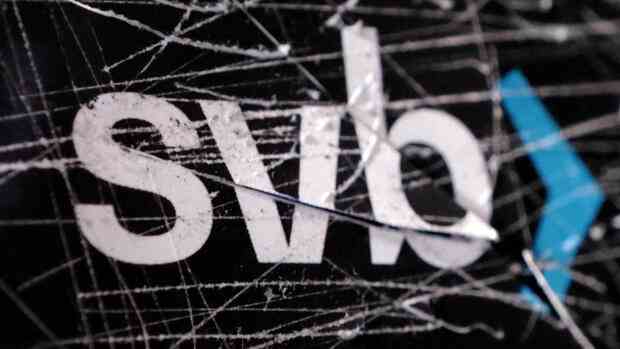Denver, Dusseldorf After the end of the Silicon Valley Bank (SVB) and two other small US institutions last week, Americans are shifting their deposits on a grand scale. The main beneficiaries are the big banks JP Morgan Chase, Bank of America, Citigroup and Wells Fargo. Bank of America has received more than $15 billion in new deposits in the past few days, Bloomberg reports.
JP Morgan, America’s largest bank, is also said to have received billions in new client money.
After the surprising bankruptcy of SVB, which was the dominant bank for start-ups and venture capitalists, SVB customers were initially drawn to the large institutions, which are more strictly regulated and better able to absorb turbulence.
Venture capitalists, who had triggered and fueled a bank run with their warnings of a possible bankruptcy of the SVB, sometimes gave their portfolio companies specific tips on where to put their money in safety: “We recommend that you take measures and put your money in accounts of large traditional Postponing banks like JP Morgan, Citibank, Bank of America, Morgan Stanley, Wells Fargo and the like,” wrote the Global Founders Capital (GFC) team to dozens of companies.
Many investors only realized at the moment of the crisis that the often young and inexperienced entrepreneurs had often deposited their entire capital, worth millions, with just one small bank.
“We have learned from the SVB incident that some of our start-ups hold funds from the last rounds – in some cases significant amounts – with banks as well as challenger banks à la Revolut Business or N26,” said Berthold Baurek-Karlic from Viennese venture capitalist Venionaire Capital the Handelsblatt. He emphasizes that there is nothing wrong with banks like the London start-up Revolut, but his team now recommends a spread across several banks.
Sven Weber, partner at the US investment company Knightsbridge Advisers, also advises founders to have accounts with more than just one bank. “I could imagine that the companies will become customers of a large and a small bank in the future,” he said in an interview with the Handelsblatt. The tech industry has to sort itself out after the shock of the past week.
The SVB was surprisingly closed by the regulators of the FDIC deposit insurance on Friday. Until Sunday evening, customers had to assume that they would not see large parts of their deposits again. In the US, deposits are actually only insured up to the limit of $250,000 per person per bank. After a rescue operation on Sunday, however, it was clear that customers of SVB and Signature Bank, which also failed, would have access to all their funds.
Fintech Brex is also among the winners
But there were also companies away from the big Wall Street houses that benefited from the situation. The Fintech Brex, for example, is also one of the winners. “On Thursday alone we received billions in new customer funds,” said co-founder Henrique Dubugras on the US stock exchange broadcaster CNBC.
The fintech is aimed specifically at start-ups and helps them allocate funds to up to nine banks in order to make the best possible use of the US deposit insurance. In the past, Brex was one of the banks recommended as a banking partner to entrepreneurs at the famous Y-Combinator business incubator. Brex is also able to open new accounts very quickly. The company gained more than 3,000 new customers last weekend.
>> Read also: Bankruptcy of the Silicon Valley Bank also threatens companies in Germany
Citizens Financial Group, based in Providence, Rhode Island, reported that it had seen “a significant increase in interest from new customers” in the past few days. Therefore, the branches of the bank would temporarily have longer opening hours.
And employees at the Swiss Sygnum Bank, which specializes in digital assets, also had to work overtime. In the career network LinkedIn, the company reports a “significant increase in applications for new bank accounts”. These would mainly come from internationally based investors, asset managers and blockchain projects looking to diversify their crypto investments.
Meanwhile, it remains to be seen whether other small banks will fall victim to the turbulence. “The regional banks’ raison d’être is at stake here and it is still unclear how this will turn out,” said a Berlin investor to the Handelsblatt.
The investment firm GFC, for example, explicitly warned its portfolio companies that other banks could be sucked into it, especially “digital banks and other technology-focused banks”. The senders named Mercury, First Republic, Signature and Pacwest.
First publication: 03/15/2023, 04:39 a.m.
More: Short sellers earn 513 million dollars from SVB bankruptcy – in one day
